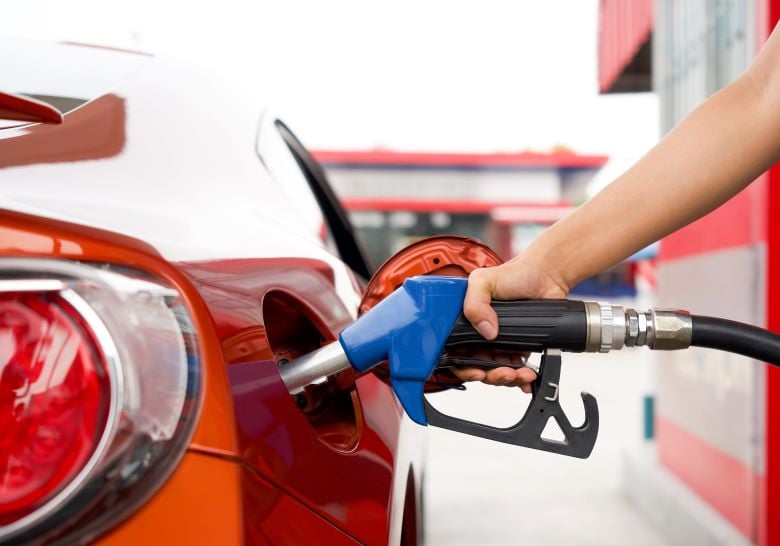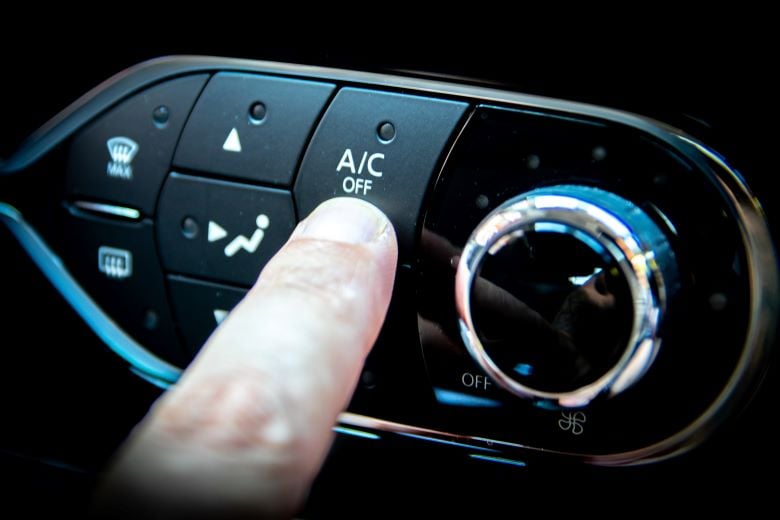
8 Mistakes to Avoid to Improve Your Car's Fuel Efficiency
- Vehicle Maintenance
- PEAK
- September 16, 2024
Learn how to use smart driving habits to improve your vehicle's fuel efficiency.
Getting all the bang you can for your gasoline buck is becoming a financial necessity. Gas is expensive, future prices are unpredictable, and everyone is feeling the pinch of rising costs and inflation.
While you don't have much control over the price you pay at the pump, you can use smart driving habits to improve your vehicle's fuel efficiency. To get started, recognize and eliminate behaviors that make your vehicle burn more gas than it needs.
New driver? You may be surprised at some of the ways you can empty your tank in a hurry. And even if you’ve been on the road for decades, a few reminders can pay off big when you’re at the pump. Here are eight ways a lot of drivers burn through gas without even realizing it.


Changing speeds too often
Every time you change your speed, you use more gas. If you're constantly accelerating, braking, and accelerating again, your fuel economy will plummet. The U.S. Department of Energy (DOE) says that excessive speed changes can slash your fuel economy by up to 30% on the highway and as much as 40% in stop-and-go traffic.
Instead of continuing a gas-guzzling pattern of aggressive acceleration and braking, adopt these habits instead:
- Accelerate gently and smoothly
- Maintain a steady speed as much as possible
- Remain attentive to traffic conditions so you can avoid hard braking
- Engage your cruise control when you're on the highway
The DOE also recommends using monitoring devices to track your acceleration and braking habits. A University of California, Davis study found that drivers who use these devices can improve their fuel efficiency by as much as 10%.
Driving too fast
Vehicle manufacturers typically engineer their cars for maximum fuel efficiency in the range of about 50–60 miles per hour (80–100 kilometers per hour). The reason? Governments use that range when testing vehicles to see how many miles per gallon (MPG) they get in the city and on the highway.
In most passenger vehicles, gas mileage drops off fast at speeds above 60 mph. According to U.S. News & World Report, driving at 80 mph instead of 60 mph can cost you up to one-third of your fuel efficiency. The DOE says that for every 5 mph you drive above 50 mph, you effectively pay about 24 cents more per gallon of gas.
This problem is easy to solve: stick to around 60 mph on the highway, especially on longer trips.
Carrying around excess weight
If you find yourself wondering why your car is suddenly dropping in fuel efficiency, take a look at what you're towing around. Roof racks, unnecessary cargo, and clutter can all lead to dramatic fuel efficiency losses, especially at higher speeds. Those golf clubs that live in your trunk? Time to move them to the garage.
According to the DOE, every 100 pounds of excess weight in your vehicle reduces fuel efficiency by 1%. The DOE also states that lighter, rear-mounted cargo boxes cause fuel efficiency losses of 1% to 5%, while heavier roof-mounted units can increase fuel consumption by 2% to 8% in the city and up to 25% at Interstate highway speeds.
Here's what to do:
- Cut clutter: remove all non-essential items from your vehicle and find another place to store them
- Remove cargo boxes when they're not in use
- Choose the lightest wheels and tires that are safely rated for your vehicle
Underinflating your tires
If you don't have enough air in your tires, your fuel efficiency suffers. This is because underinflated tires have more surface contact with the road, which creates drag and forces your vehicle to work harder to achieve and maintain its speed.
For every 1 pound per square inch (psi) your tires are underinflated, your vehicle's fuel efficiency falls by about 0.2%. Tire pressure ratings vary among vehicles, but they usually fall in the range of 28–36 psi. Consult your owner's manual for details specific to your vehicle.
The solution: check your tire pressure regularly, and always keep it within your vehicle's recommended range.


Overusing your air conditioner
One driving technique to increase your fuel efficiency is to use your air conditioning strategically. Your car uses fuel to power your AC unit, so turning it off when you don't need it is generally a good idea.
However, it's not quite as simple as rolling down your windows instead of using your AC. At higher speeds, open windows cause aerodynamic drag that can end up costing you more gas than you would have used by running your air conditioner instead.
The simplest solution is to open your windows in the city whenever possible and engage your AC on the highway. However, if you really want to maximize your savings, open your vehicle's air vents on the highway instead of turning on the AC. This will save energy while helping keep things cool.
You can also reduce your need for air conditioning if you:
- Park in shaded areas during hot and sunny weather
- Use thick reflective covers on your windshield and rear windows to help prevent in-vehicle heat gain
- Open your windows to let out excessive heat before turning on your AC
Neglecting routine maintenance
When asking how to increase fuel efficiency, many drivers overlook the importance of routine maintenance. Faulty and inefficient fuel injectors, saturated air filters, and damaged or dead spark plugs can all send your gas mileage in the wrong direction.
PEAK Auto has lots of resources to help you take better care of your car. Learn how to prepare your car for summer, how to get it ready for winter, and explore maintenance tips for first-time vehicle owners. We also have a special spring maintenance guide, which covers maintenance tips that maximize performance and fuel efficiency year-round.
Idling too long
Beyond wasting gas, idling releases avoidable toxic emissions. If you're going to be at a standstill for more than about 30 seconds, turn off your vehicle. According to the DOE, you'll only use about 10 seconds' worth of fuel to restart it.
Some gasoline super savers even turn off their vehicles at red lights and in traffic jams. Even if you don't take things that far, you can still cut your fuel consumption by switching off your engine when idling at the curb, in parking lots, and in line at drive-thrus.
Failing to plan ahead
A little advance planning can also increase fuel efficiency, sometimes dramatically. Check traffic conditions before you start out on a trip — especially a longer one. Avoiding congested areas can save you time and frustration as well as gas.
Cold starts also drain much more gas than your car uses to get going when it's already warm. Citing a Federal Trade Commission (FTC) study, NBC News reports that cold starts use up twice as much gas as covering the same distance with a vehicle that's already warmed up.
The strategy: try to combine multiple stops or errands into a single trip whenever you can, and limit the number of stops you make when you're on a longer trip.
PEAK products help keep your vehicle running strong
Beyond providing helpful auto care and maintenance tips on our blog, PEAK Auto offers multiple products that can help keep your vehicle in ship-shape.
Check out our industry-leading lineup of premium antifreeze and coolants, along with our BlueDEF and BlueDEF Platinum lines of diesel exhaust fluid (DEF). PEAK's top-performing DEF products play a critical role in reducing emissions from diesel vehicles while improving fuel efficiency by as much as 5%.

